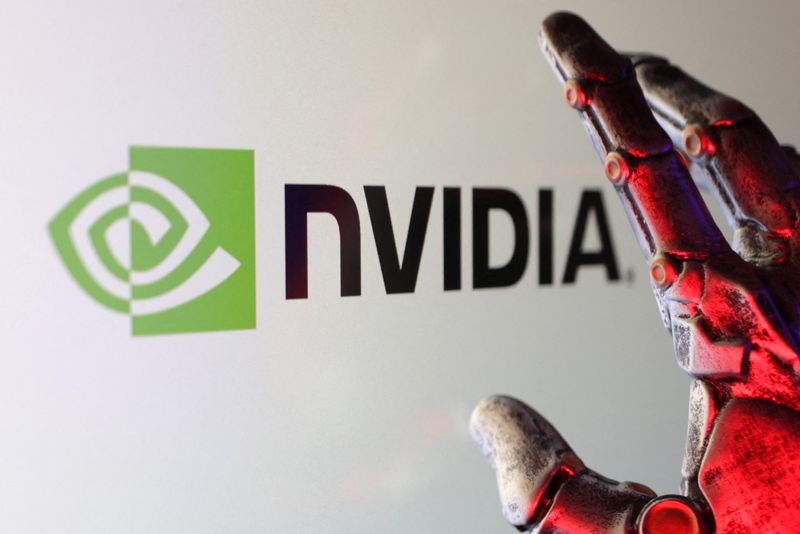By Supantha Mukherjee
PARIS (Reuters) -Nvidia (NVDA) CEO Jensen Huang has been pitching the idea of “sovereign AI” since 2023. Europe is now starting to listen and act.
The concept is based on the idea that the language, knowledge, history and culture of each region are different, and every nation needs to develop and own its AI.
Last week, the CEO of the artificial-intelligence chipmaker toured Europe’s major capitals – London, Paris and Berlin – announcing a slew of projects and partnerships, while highlighting the lack of AI infrastructure in the region.
In a place where leaders are increasingly wary of the continent’s dependency on a handful of U.S. tech companies and after drawing ire from the U.S. President Donald Trump, his vision has started to gain traction.
“We are going to invest billions in here … but Europe needs to move into AI quickly,” Huang said on Wednesday in Paris.
On Monday of last week, British Prime Minister Keir Starmer announced 1 billion pounds ($1.35 billion) in funding to scale up computing power in a global race “to be an AI maker and not an AI taker.”
French President Emmanuel Macron called building AI infrastructure “our fight for sovereignty” at VivaTech, one of the largest global tech conferences.
After Nvidia laid out plans to build an AI cloud platform in Germany with Deutsche Telekom, German Chancellor Friedrich Merz called it an “important step” for the digital sovereignty and economic future of Europe’s top economy.
Europe lags behind both the U.S. and China as its cloud infrastructure is mostly run by Microsoft, Amazon and Alphabet’s Google, and it has only a few smaller AI companies such as Mistral to rival the U.S. ones.
“There’s no reason why Europe shouldn’t have tech champions,” said 31-year-old Mistral CEO Arthur Mensch, sitting beside Huang, who has led Nvidia for more than three decades, at a panel at VivaTech.
“This is a gigantic dream.”
GIGAFACTORY PLANS UNLEASHED
In France, Mistral has partnered with Nvidia to build a data centre to power the AI needs of European companies with a homegrown alternative.
It will use 18,000 of the latest Nvidia AI chips in the first phase, with plans to expand across multiple sites in 2026.
In February, the European Union announced plans to build four “AI gigafactories” at a cost of $20 billion to lower dependence on U.S. firms.
The European Commission has been in touch with Huang and he had told the EU executive that he was going to allocate some chip production to Europe for these factories, an EU official told Reuters.
Story Continues

